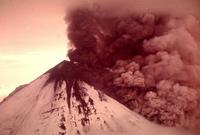-
Flood risk in Europe could double by 2050
Losses from extreme floods in Europe could more than double by 2050 because of climate change and socioeconomic development. Floods in the European Union averaged 4.9 billion euros a year from 2000 to 2012. These average losses could increase to 23.5 billion euros by 2050. In addition, large events such as the 2013 European floods are likely to increase in frequency from an average of once every sixteen years to a probability of once every ten years by 2050. Understanding the risk posed by large-scale floods is of growing importance and will be a key for managing climate adaptation.
-
-
What use are apps when your web infrastructure is underwater?
This winter has seen unprecedented high winds and flooding resulting in widespread and in some cases, long-lasting power outages in the United Kingdom, particularly in the west of England. Time and time again, companies have advised their customers to go online to check their Web sites for the latest information. Some organizations have even created apps specifically designed to assist flood victims; others have established Facebook self-help groups. There is a fundamental problem here: There are two primary ways in which we gain access to the Web, via a landline and using a mobile connection. Within our homes the landline connects to a wireless router and also, for a lot of homes, a cordless telephone, both of which need electrical power to work. So, when the lights go out, your router and cordless phones are useless. The result is that at times of crisis, the customers in most need are often the ones with no access.
-
-
People want to save water, but do not know how
Many Americans are confused about the best ways to conserve water and have a slippery grasp on how much water different activities use, according to a national online survey. Experts say the best strategy for conserving water is to focus on efficiency improvements such as replacing toilets and retrofitting washing machines. The largest group of the participants, however, nearly 43 percent, cited taking shorter showers, which does save water but may not be the most effective action.
-
-
NIST’s voluntary cybersecurity framework may be regarded as de facto mandatory
The National Institute of Standards and Technology’s (NIST) voluntary cybersecurity frameworkissued in February establishes best practices for companies that support critical infrastructure such as banking and energy. Experts now warn that recommendations included in the framework may be used by courts, regulators, and even consumers to hold institutions accountable for failures that could have been prevented if the cybersecurity framework had been fully implemented by the respective institution.
-
-
Real-time forecast of Hurricane Sandy accurately predicted storm’s track, intensity
A real-time hurricane analysis and prediction system that effectively incorporates airborne Doppler radar information may accurately track the path, intensity, and wind force in a hurricane. This system also can identify the sources of forecast uncertainty.
-
-
Volcanic eruptions explain recent warming hiatus

Volcanic eruptions in the early part of the twenty-first century have cooled the planet, according to a study led by Lawrence Livermore National Laboratory. This cooling has partly offset the warming produced by greenhouse gases, explaining why, despite continuing increases in atmospheric levels of greenhouse gases, and in the total heat content of the ocean, global-mean temperatures at the surface of the planet and in the troposphere (the lowest portion of the Earth’s atmosphere) have shown relatively little warming since 1998. Scientists note that human-induced – that is, greenhouse gasses emissions-related — change typically causes the troposphere to warm and the stratosphere to cool. In contrast, large volcanic eruptions cool the troposphere and warm the stratosphere.
-
-
Unsupervised robotic construction crew to build flood defenses
On the plains of Namibia, millions of tiny termites are building a mound of soil — an 8-foot-tall “lung” for their underground nest. They do so without a supervisor, foreman, or CEO to tell them what to do. During a year of construction, many termites will live and die, wind and rain will erode the structure, and yet the colony’s life-sustaining project will continue. Harvard researchers, inspired by the termites’ resilience and collective intelligence, have created an autonomous robotic construction crew. The system needs no supervisor, no eye in the sky, and no communication: just simple robots — any number of robots — that cooperate by modifying their environment. In the future, similar robots could lay sandbags in advance of a flood, or perform simple construction tasks on Mars.
-
-
Protecting the grid from geomagnetic storms
A geomagnetic storm disrupts the Earth’s magnetic field by producing geomagnetically induced currents (GICs) on the Earth’s surface, which can enter the power grid at transformer stations and move along power lines, disrupting normal operations. A geomagnetic storm would reach Earth between fourteen and ninety-six hours, leaving little time to safeguard critical infrastructure. U.S. regulators are drafting reliability standards and procedures to protect the U.S. power grid from such storms.
-
-
Limitations and side effects of large-scale geoengineering
Despite international agreements on climate protection and political declarations of intent, global greenhouse gas emissions have not decreased, and with the accelerating industrialization of emerging markets, are not likely to any time soon. Therefore, large-scale methods – called geoengineering or climate engineering — artificially to slow down global warming are increasingly being discussed. Scientists say that the long-term consequences and side effects of these methods have not been adequately studied.
-
-
Testing vibration caused by high-speed trains
New high-speed train lines are likely to be built as cities grow, and one problem planners have foreseen is vibrations in the ground caused by trains passing at speed. While these vibrations would probably be too small to damage buildings, they could disrupt the work of buildings such as a hospital by affecting sensitive equipment. Scientists have developed a new model to predict how much a new high-speed railway would shake the ground around it, and the effect this could have on those living near the line.
-
-
Damage to coastal infrastructure from storm surges, floods may reach 9% of global GDP
Damage to the world’s coastal infrastructure as a result of flooding, sea level rise, and coastline development is expected to cost as much as 9 percent of global Gross Domestic Product (GDP) according to a new report published in the Proceedings of the National Academy of Sciences(PNAS).
-
-
Out-of-control giant satellite poses “Gravity”-style space debris threat

Envisat, a £1.8 billion, 9-meter-long behemoth, was launched by the European Space Agency (ESA) in 2002, and used ten sophisticated sensors to observe and monitor Earth’s land, atmosphere, oceans and ice caps. ESA, however, lost contact with the satellite in April 2012 — and declared the end of the mission soon after. The satellite now orbits the Earth free from human control at an altitude of 790 km — where the amount of space debris around the planet is greatest. In a paper, University of Leicester students point out that unless it is brought under control, Envisat could potentially pose a threat similar to the events which plague Sandra Bullock in the Oscar-nominated sci-fi thriller “Gravity.”
-
-
Skeptics doubt voluntary Cybersecurity Framework will achieve its goal
The Framework for Improving Critical Infrastructure Cybersecurity, developedby NIST following Executive Order 13636to promote cybersecurity, has been received with both support and skepticism from critical infrastructure industries. The 41-page document, put together by industry and government experts, offers guidelines on cybersecurity standards and best practices to critical infrastructure firms. It says its role is to be a complement to industries’ existing risk management practices.Skepticssay that without incentives, legislation, or enforcement, the guidelines will not be adopted.”The marketplace will punish any company that implements anything that could be considered excessive security, because it will increase their costs,” says an industry insider.
-
-
Y-12 protestors receive lengthy prison terms from judge
Judge Amul R. Thapar sentenced three peace protestors who breached the Y-12 Nuclear Security Complex at Y-12 National Security Complexat Oak Ridge, Tennessee, to lengthy sentences in federal prison. Judge Thapar stated that he did not believe the three defendants — Sister Megan Rice, 84. Michael R. Walli, 65, and Greg Boertje-Obed, 59 — were terrorists but, nevertheless, they had broken the law and must serve sentences which demonstrated that the law should be taken seriously.To reach the Highly Enriched Uranium Materials Facility (HEUMF) building at Y-12, the three peace activists, led by the octogenarian Sister Rice, cut through four fences and escaped detection by security guards authorized to use lethal force, and by ground sensors, sophisticated surveillance cameras, and other security equipment described by Y-12 as “…the most stringent security system in the world.”
-
-
Sensors would spot structural weaknesses in bridges, stadiums before they collapse
A team of engineers, with a grant of $1 million from the government of Qatar, will work to develop a wireless sensor network which will monitor vibrations, sagging, and stresses to assess a structure’s ability to carry its load. The proposed system would not only detect damage after it occurs, but would aim to predict it before it takes place.
-
- All
- Regional
- Water
- Biometrics
- Borders/Immig
- Business
- Cybersecurity
- Detection
- Disasters
- Government
- Infrastructure
- International
- Public health
- Public Safety
- Communication interoperabillity
- Emergency services
- Emergency medical services
- Fire
- First response
- IEDs
- Law Enforcement
- Law Enforcement Technology
- Military technology
- Nonlethal weapons
- Nuclear weapons
- Personal protection equipment
- Police
- Notification /alert systems
- Situational awareness
- Weapons systems
- Sci-Tech
- Sector Reports
- Surveillance
- Transportation
Advertising & Marketing: advertise@newswirepubs.com
Editorial: editor@newswirepubs.com
General: info@newswirepubs.com
2010-2011 © News Wire Publications, LLC News Wire Publications, LLC
220 Old Country Road | Suite 200 | Mineola | New York | 11501
Permissions and Policies
Editorial: editor@newswirepubs.com
General: info@newswirepubs.com
2010-2011 © News Wire Publications, LLC News Wire Publications, LLC
220 Old Country Road | Suite 200 | Mineola | New York | 11501
Permissions and Policies
